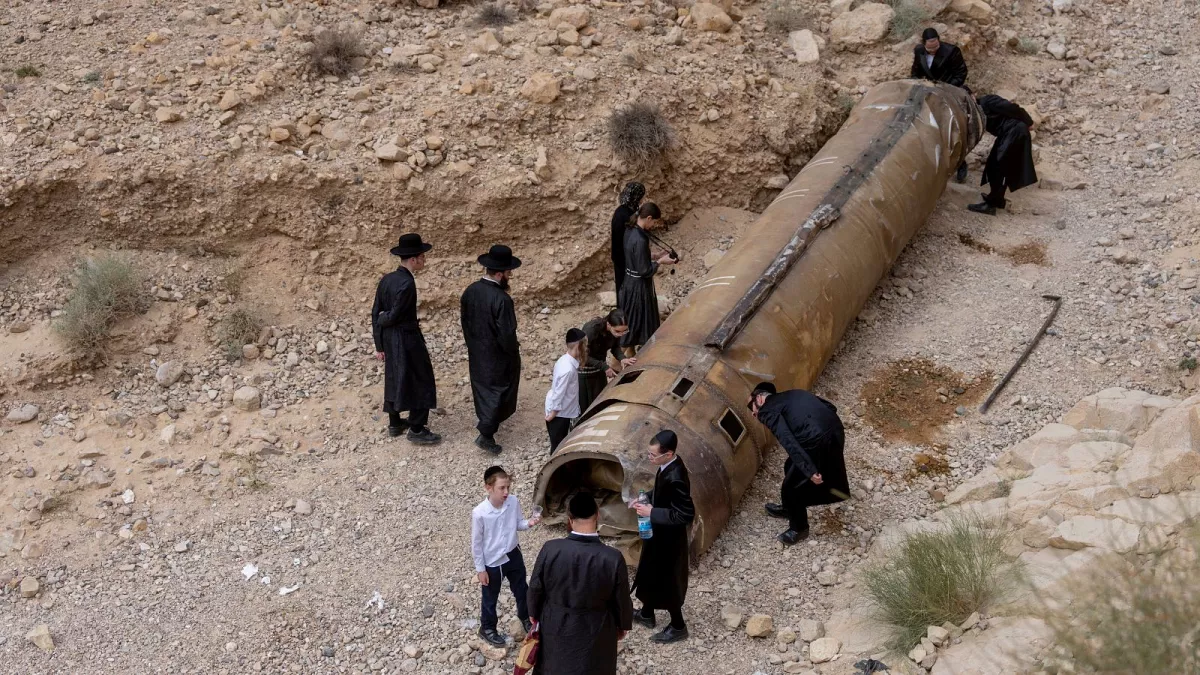On October 30, 2024, Iran’s Defense Minister Aziz Nasirzadeh addressed the media with a firm message in response to recent Israeli airstrikes, asserting that Iran’s missile production capabilities remain unaffected.
The Israeli strikes, which targeted military facilities in Iran on October 26, have since fueled tensions in the region, with Israeli and international reports indicating significant damage.
However, Iranian officials maintain that these strikes did not disrupt the Islamic Republic’s missile production and, in turn, vowed an “appropriate response” if necessary. This development sheds light on the escalating military postures and ongoing power struggles between Iran and Israel in the Middle East, where both nations hold longstanding hostilities.
Iran’s Resilient Missile Production: Defense Minister’s Statement
Aziz Nasirzadeh’s statement underlined Iran’s commitment to maintaining its defense and offensive systems, declaring there had been no interruption in Iran’s missile production process. According to state media, Nasirzadeh noted that “the enemy tried to damage both our defensive and offensive systems,” but Iran’s operational capabilities were unaffected.
His statements reinforce Iran’s defensive resolve and its stance of resilience amid heightened tensions with Israel. The Defense Minister’s remarks aimed to reassure Iran’s citizens and send a signal to external observers that the country remains capable of defending itself.
Read : Israel Accuses 6 Al Jazeera Journalists of Being Hamas Terrorists
Nasirzadeh’s comments followed international reports that detailed the damage Israel inflicted on Iran’s long-range missile production capabilities. These reports claim that at least a dozen solid-fuel mixers, essential components in missile production, were destroyed, potentially delaying missile production by a year.
Read : Colombia Suspends Coal Exports to Israel Due to War in Gaza
The reported destruction of these facilities represents a direct blow to Iran’s missile infrastructure, especially its long-range missile production, which has been central to its defense strategy. Nevertheless, Nasirzadeh and other Iranian officials maintain that production has not been compromised, positioning their response as one of resilience and readiness.
The Aftermath of the Strikes: Damage Reports and Losses
The Israeli airstrikes reportedly resulted in casualties and damage to military infrastructure. According to Iranian armed forces, the attack killed four soldiers, damaged radar systems, and allegedly killed one civilian.
Israeli Prime Minister Benjamin Netanyahu confirmed the strikes and stated that the attacks were intended to impair Iran’s defensive capabilities, asserting that Israel had dealt a significant blow to Iran’s missile production.
He justified the strikes as a response to an October 1 missile attack by Tehran, which followed the assassination of several Iran-backed militant leaders and a commander of Iran’s Revolutionary Guard Corps (IRGC).

Netanyahu’s remarks reflect Israel’s commitment to countering perceived Iranian threats to its national security. Israel has long viewed Iran’s missile program and regional activities as existential threats, particularly given Iran’s support for militant groups and opposition to Israel’s policies.
While Iranian officials contend that their missile production remains intact, Israel continues to frame its actions as preemptive self-defense measures to prevent future attacks and curb Iranian influence.
The human toll of these strikes has also sparked concern, as the Iranian media reported civilian casualties alongside military losses. While Iran acknowledges the limited damage to radar systems, the overall casualty and infrastructure impact underscores the dangers of military escalation.
Each exchange between Israel and Iran heightens the risk of wider regional conflict, as both nations remain entrenched in their policies of deterrence.
The Regional Context and International Reactions
Iran and Israel’s confrontational relationship continues to impact the Middle East’s geopolitical stability, and recent developments have drawn international attention. Israel’s attacks on Iranian facilities come amid broader tensions regarding Iran’s regional activities and allegations of transferring missile and drone technologies to Russia.
These accusations have led to economic sanctions from the European Union in response to claims that Iran has been arming Russia in its war against Ukraine, which Iran has denied. The sanctions have further isolated Iran diplomatically and financially, intensifying its motivations to maintain a robust military capability.
Iran’s regional influence extends to various groups, such as Hezbollah in Lebanon, Hamas in Gaza, and other factions that oppose Israeli and Western interests.

This influence, paired with its missile program, reinforces Israel’s rationale for adopting aggressive measures against Iran, particularly as Israel seeks to prevent Iran from expanding its network of proxies. Iran, however, asserts that its missile program is defensive and that it has the right to develop military technology to protect its sovereignty.
Iran’s assertion that it does not seek war contrasts sharply with its vow to retaliate against Israel’s strikes. The ambiguity in its stance reflects both a desire to avoid direct confrontation and a strategic need to deter further attacks.
By emphasizing its missile production resilience, Iran is likely attempting to reinforce its deterrent capabilities while avoiding an escalation that could lead to direct war. Israeli officials, on the other hand, have warned Iran against retaliation, maintaining that any counterattack will only lead to more severe consequences for Iran’s defense systems.
In the face of the October 26 airstrikes, Iran’s leaders insist that the country’s missile production capabilities remain undamaged and fully operational.
Defense Minister Aziz Nasirzadeh’s statements highlight Iran’s resilience and its determination to sustain its missile program despite external pressures and the targeted Israeli airstrikes. However, reports of damaged facilities and casualties illustrate the tangible impact of this escalating conflict, with potential implications for regional stability and international relations.
The ongoing hostilities between Iran and Israel emphasize the volatility of Middle Eastern geopolitics, where military actions, proxy conflicts, and international sanctions intertwine.
As Israel continues its strategy of preventive strikes and Iran holds its stance of defensive resilience, the international community remains watchful, aware that any miscalculation could trigger a wider conflict.

